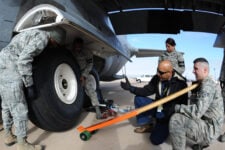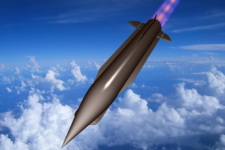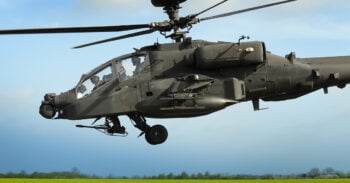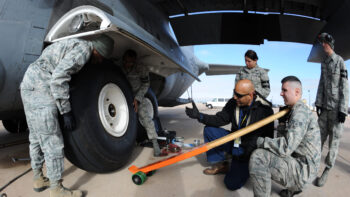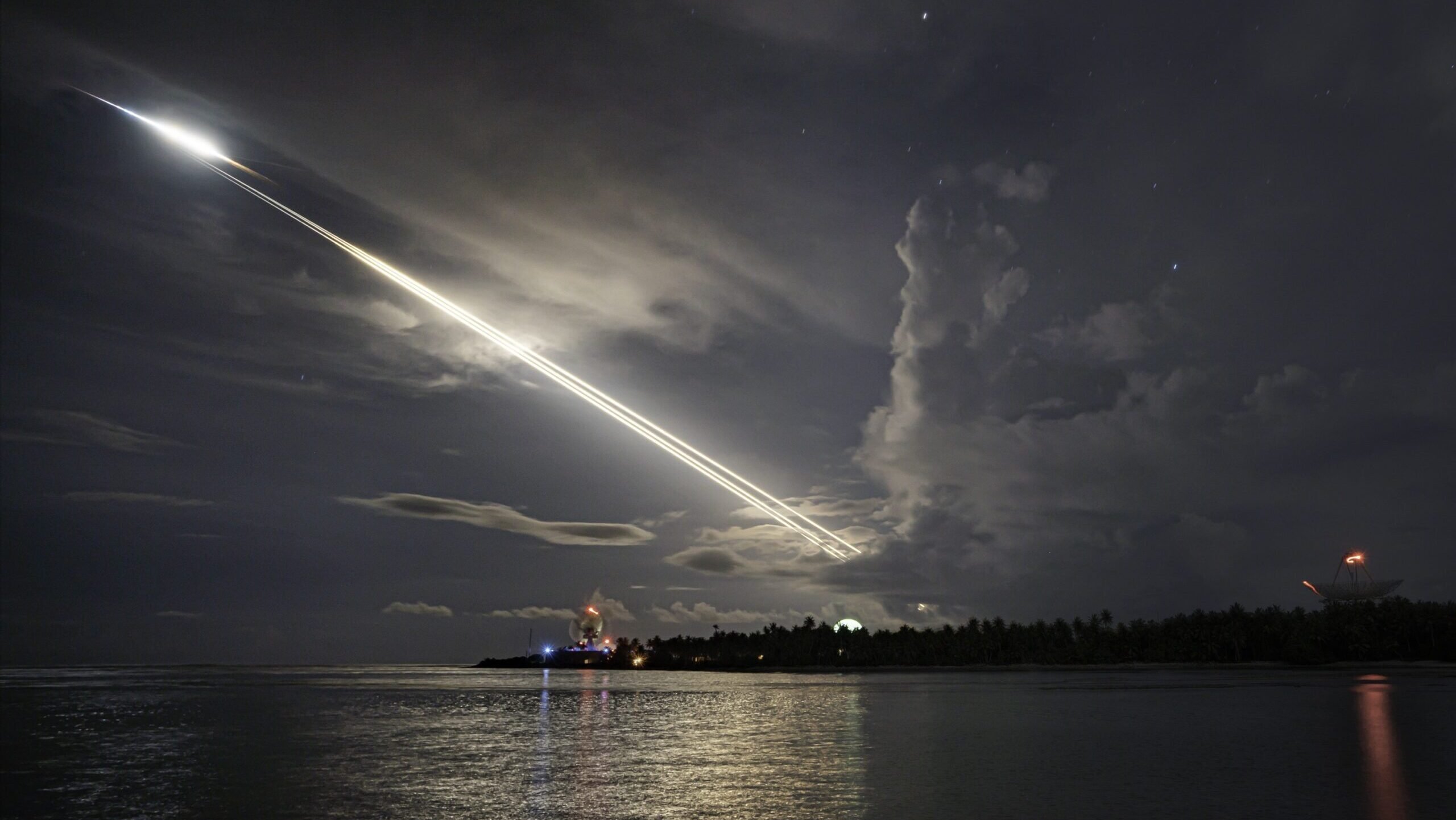
Pictured is a 2023 test launch of an unarmed Minuteman III at the Kwajalein Atoll, in the Republic of the Marshall Islands. (US Army photo by Amy Hansen)
WASHINGTON — The Air Force’s replacement for its nuclear-tipped Minuteman III ballistic missile fleet has suffered a “critical” cost breach and could be delayed by as much as two years, a service spokesperson confirmed to Breaking Defense, a setback for the program that officials have long warned could run into trouble.
The service notified Congress Thursday that the LGM-35A Sentinel “has exceeded its initial cost projections,” the spokesperson said, prompting what’s known as a Nunn-McCurdy breach. According to the spokesperson, the Sentinel program’s 2020 baseline program acquisition unit cost of $118 million per missile — the sum of development, construction and procurement — increased by “at least 37 percent” to approximately $162 million in 2020 dollars, prompting a “critical” breach that requires Defense Secretary Lloyd Austin to certify the program to stave off its cancellation.
Work on Sentinel is continuing as Austin’s review proceeds, the spokesperson said.
The $96 billion Sentinel program is now estimated at about $131.5 billion in current dollars, Bloomberg reported, a hefty sum driven by unforeseen complications with silo and launch center construction. The program’s current objective for initial operational capability (IOC) is June 2029, which the Air Force spokesperson said could be delayed by as much as two years as a result of the issues.
The Air Force originally planned to acquire 659 new Sentinel ballistic missiles alongside refurbishing 450 existing launch facilities, which would house 400 of the missiles. IOC is currently expected to reflect 20 Sentinel missiles on alert, and a longer time to field them could result in greater sustainment costs to keep its Minuteman III predecessor operational.
A top modernization effort for the Defense Department, the Sentinel program’s issues have already drawn congressional scrutiny. And with strong backing from lawmakers, it seems unlikely the program will be terminated.
“Sentinel is absolutely necessary for the future of our nuclear deterrent. I’m committed to conducting vigorous oversight of the program and ensuring the Air Force follows through on making the necessary changes to address the cost overruns while continuing to advance the program,” House Armed Services Committee Chairman Mike Rogers, R-Ala., said in a statement today.
“The Department must ensure that Sentinel is ready in time to replace the current ICBMs before they reach the end of their lives. Failure is not an option,” he added.
Northrop Grumman, which won the Sentinel contract in 2020, has struggled with supply chain woes, workforce shortages and clearance issues, the Government Accountability Office warned in June 2023. Officials recently have also been vexed by the program’s challenges, with Air Force Secretary Frank Kendall lamenting its “unknown unknowns.”
“Northrop Grumman is the prime contractor for the engineering and manufacturing development (EMD) phase for the Sentinel program, and in partnership with the Air Force, we continue to make significant progress on this highly complex program, achieving key milestones to mature the design and reduce risk,” Northrop Grumman said in a statement.
“As part of our work on the EMD contract, our team is committed to supporting the Air Force as it assesses and updates acquisition cost forecasts for the future phases of the program, to include construction projects, production, and deployment of the weapon system. We are focused on continuing to perform and meet our commitments under the EMD contract as we move toward delivery of this essential national security capability,” the company added.
Northrop Grumman will report its 2023 year-end earnings on Jan. 25.
Senator raises defense industry concerns over Boeing’s potential Spirit buy
Sen. Jerry Moran, R-Kan., says defense primes need more clarity about what happens to their programs if Boeing buys Spirit.


